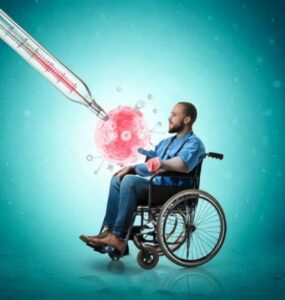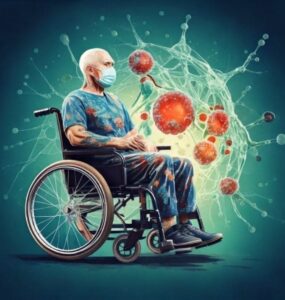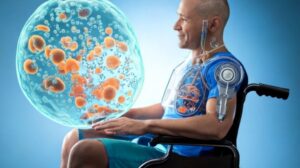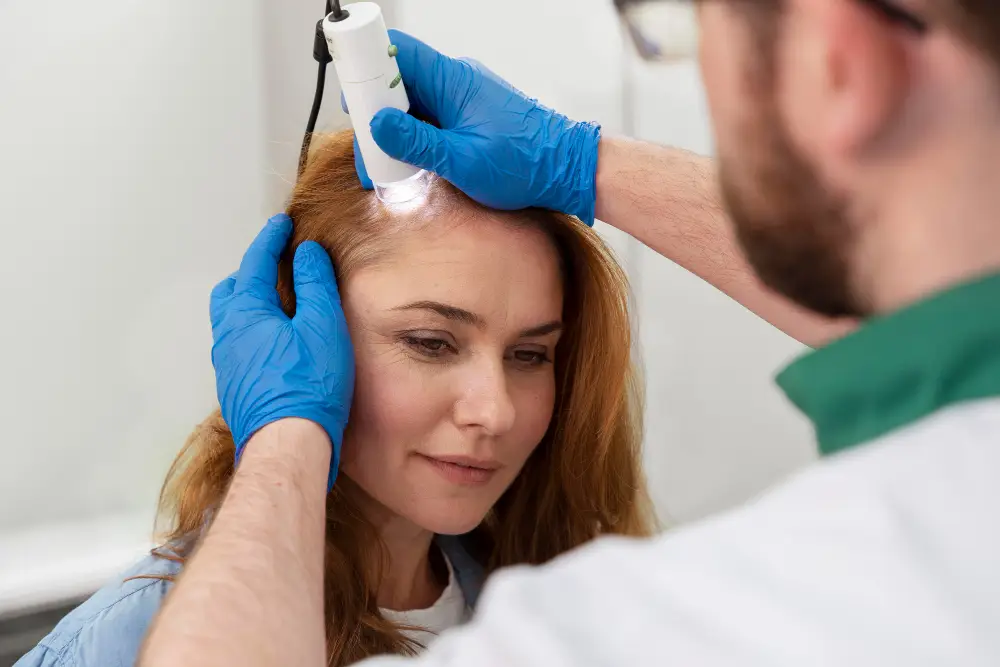
A Guide to Paraplegic Stem Cell Treatment: Understanding Your Options for Recovery
Key Takeaways
- Emerging Pathways: Paraplegic stem cell treatment represents an evolving area of research focused on neuroregeneration and functional restoration following spinal cord injury.
- Informed Decisions: Understanding the scientific basis, ethical considerations, and regulatory landscape is crucial for making confident choices.
- The Patient Journey: Navigating advanced treatments requires comprehensive support, from initial inquiry to post-treatment guidance.
- Pereira’s Advantage: Colombia offers a regulated environment for regenerative approaches, with Pereira providing a unique blend of advanced facilities, a supportive care environment, and dedicated patient advocacy.
- Clarity Through Review: A confidential case review can help determine if regenerative pathways are suitable for your specific circumstances.
Introduction: Navigating Pathways to Functional Restoration
A spinal cord injury (SCI) can profoundly alter a person’s life, often leading to paraplegia and significant challenges to motor recovery and functional restoration. For many, the journey is one of continuous adaptation, rehabilitation, and an unwavering search for hope. In recent years, the field of regenerative medicine, particularly involving stem cell treatment for paraplegia, has garnered significant attention. It represents a frontier of medical exploration aimed at harnessing the body’s own healing mechanisms to potentially repair damaged neural tissue and improve functional outcomes.
This comprehensive guide is crafted by the communications team at Regencord in Pereira, Colombia, to serve as an ethical and transparent resource. We understand the emotional weight and complex questions that accompany the exploration of advanced treatments. Our aim is to provide clarity, grounded in scientific understanding and ethical practice, helping you navigate the options for paraplegic stem cell treatment without making unverified assertions or promises. We focus on education, empowering you to make informed decisions about potential regenerative pathways available through our team.
We will delve into the current landscape of spinal cord injury care, explore the foundational concepts of neuroregeneration, and illuminate why Pereira, Colombia, has emerged as a compelling destination for those considering these advanced approaches. Our discussion will address your likely concerns, from safety and legitimacy to the practicalities of international travel and care coordination, fostering trust through transparency and a deep understanding of the patient journey.
The Stakes & Critical Implications of Spinal Cord Injury (SCI)

Spinal cord injury is a life-altering event, often resulting from trauma, disease, or degenerative conditions. It can lead to partial or complete loss of motor function, sensation, and autonomic control below the level of the injury, defining the condition of paraplegia. The World Health Organization (WHO) highlights that millions of people globally live with SCI, facing significant physical, psychological, social, and economic challenges. The implications extend far beyond mobility, impacting quality of life, independence, and overall well-being.
The severity and specific location of an SCI dictate the extent of functional loss. Injuries to the thoracic, lumbar, or sacral regions of the spinal cord can lead to paraplegia, affecting the lower half of the body. Beyond the immediate physical paralysis, SCI can result in a range of secondary complications, including chronic pain, bladder and bowel dysfunction, pressure sores, and increased susceptibility to infections. These factors collectively underscore the profound need for effective interventions aimed at neuroregeneration and functional restoration.
The U.S. National Institutes of Health (NIH) consistently funds and publishes research into novel SCI therapies, underscoring the ongoing scientific effort to address this complex medical challenge. While significant advancements have been made in acute care and rehabilitation, the search for treatments that can genuinely restore lost function remains a priority. This pursuit drives innovation in fields like regenerative medicine, where the potential for cellular repair and regeneration offers a new horizon of possibilities for individuals living with paraplegia.
The Conventional Approach to SCI Care in the USA (A Comparative Glance)

In many regions, including the USA, conventional care for spinal cord injury typically focuses on acute stabilization, intensive rehabilitation, and symptom management. Following the initial trauma, the primary goals are to prevent further damage, stabilize the spine, and initiate early physical, occupational, and psychological therapy. Rehabilitation centers play a pivotal role, helping individuals maximize their existing function, learn compensatory strategies, and adapt to life with paraplegia.
The U.S. healthcare system, overseen by bodies like the Food and Drug Administration (FDA) for drug and device approvals and guided by research from the NIH, emphasizes evidence-based practices. While cutting-edge rehabilitation techniques and supportive technologies continue to evolve, the approach to biological neuroregeneration in the USA remains largely within controlled clinical trials for many advanced stem cell applications for SCI. This means that while research is robust, widely available clinical applications of certain regenerative treatments are still under rigorous investigation, which can lead to limited options for patients outside of research protocols.
Patients often face significant hurdles, including navigating complex insurance systems, managing the high costs associated with long-term rehabilitation, and encountering geographical limitations in accessing specialized centers. The conventional journey, while vital for stabilization and adaptation, often leaves individuals with paraplegia seeking additional pathways for enhanced motor recovery and functional restoration, leading them to explore options beyond their immediate geographic boundaries.
The Pereira, Colombia Advantage: A Holistic Environment for Regenerative Pathways

For individuals exploring advanced regenerative pathways for paraplegia, Pereira, Colombia, offers a distinct and compelling set of advantages. Colombia has a robust and regulated healthcare system, with medical facilities that meet international standards. The Colombian Ministry of Health and INVIMA (Colombia’s National Food and Drug Surveillance Institute) oversee and regulate medical treatments, ensuring adherence to established protocols. This regulatory framework provides a level of assurance for patients considering medical interventions in the country.
Our experience shows that patients navigating spinal cord injury therapies often face a fragmented system, leaving them feeling isolated. A truly holistic approach, integrating not just the treatment but also robust pre-travel planning, on-site support, and clear post-procedure guidance, significantly reduces patient anxiety and fosters a sense of empowerment. The team at Regencord in Pereira, Colombia, is built upon this principle. We recognize that effective care extends beyond the procedure itself; it encompasses the entire patient journey.
Beyond advanced medical infrastructure, Pereira offers a unique therapeutic environment. The tranquil, naturally rejuvenating setting of the Coffee Axis region, combined with a supportive community and dedicated patient advocacy, can contribute positively to a patient’s overall well-being. This holistic perspective is often overlooked in traditional clinical settings focused solely on the procedure. Patients find comfort in the serene surroundings, which can be conducive to recovery and peace of mind.
Furthermore, the cost-effectiveness of high-quality medical care in Colombia, when compared to countries like the USA, is a significant factor. This accessibility does not compromise quality, but rather reflects different economic structures, making advanced treatments more attainable for many. The Regencord team is committed to transparent communication regarding all aspects of care, ensuring patients have a clear understanding of the process and associated considerations.
Your Partner in Planning: The Pereira Pathway Guide

Navigating the journey towards advanced regenerative therapies can feel overwhelming. To support you, the Regencord team has developed The Pereira Pathway Guide – a comprehensive resource designed to clarify each step of your potential journey with us. This guide is more than a checklist; it’s a tool for empowerment, ensuring you have all the necessary information and support for a seamless experience.
What The Pereira Pathway Guide Offers:
- Pre-Travel Planning Assistance: From initial inquiry to detailed travel logistics, including visa information, flight arrangements, and local transportation.
- Medical Coordination: Clear outlines of the assessment process, consultations, and scheduling of potential treatments.
- Accommodation & Local Support: Recommendations for comfortable lodging and information about local amenities that cater to patients’ needs.
- Communication Facilitation: Ensuring seamless communication between you, your family, and the medical team, addressing any language considerations.
- Post-Procedure Support: Guidance on follow-up care, rehabilitation recommendations, and ongoing communication after your return home.
- Financial Transparency: Clear explanation of what is included in your care plan, designed to eliminate surprises.
The Pereira Pathway Guide is a testament to our commitment to a patient-centric approach. It’s designed to transform a potentially daunting process into a manageable and supportive journey, reflecting our dedication to your comfort and peace of mind at every turn.
Our Regenerative Philosophy & Approach at Regencord

At Regencord in Pereira, Colombia, our philosophy is rooted in a deep respect for the human body’s capacity for healing and regeneration, coupled with an unwavering commitment to ethical, evidence-informed practices. We focus on exploring regenerative pathways for conditions like paraplegia, emphasizing the potential for neuroregeneration and enhanced functional restoration, always within a framework of patient safety and transparent communication.
Our approach to paraplegic stem cell treatment is not about promising quick fixes or making unverified claims. Instead, it is about understanding the complex biology of spinal cord injury and exploring how advanced cellular therapies might ethically support the body’s intrinsic repair mechanisms. We draw upon the latest research and guidelines, continually reviewing findings from reputable sources like PubMed-indexed journals and ClinicalTrials.gov to inform our perspective.
Key Principles of Our Approach:
- Patient-Centricity: Every individual’s journey is unique. Our team takes the time to understand your specific condition, medical history, and goals, tailoring discussions to your needs.
- Ethical Framework: We operate strictly within the regulatory guidelines set forth by Colombian health authorities, including INVIMA and the Ministry of Health, ensuring that all our procedures meet high ethical standards.
- Educational Empowerment: We believe that informed patients make the best decisions. Our role is to educate you about the current understanding of regenerative therapies for SCI, their potential, and their limitations, allowing you to weigh options thoughtfully.
- Holistic Support: Beyond the medical aspects, we focus on the entire patient experience, providing advocacy, logistical support, and a compassionate environment conducive to well-being.
- Collaborative Care: We encourage open communication with your primary care providers and rehabilitation teams, facilitating a coordinated approach to your long-term health management.
The Regencord team is dedicated to providing clarity and support as you consider regenerative medicine pathways. Our focus is on offering an opportunity for a comprehensive review of your case, helping you understand if these approaches align with your condition and expectations.
Overcoming Common Hesitations: Why Seeking Clarity is a Strategic Advantage
Exploring advanced treatments for a condition as significant as paraplegia, especially in an international setting, naturally brings forth questions and hesitations. We understand these concerns deeply, as they are a fundamental part of the patient journey. Addressing these directly, with empathy and verifiable information, is crucial for building trust and enabling informed decision-making.
Hesitation 1: “Is receiving stem cell treatment for paraplegia in Colombia safe or legitimate? I’m worried about unregulated ‘miracle cures’.”
This concern is entirely valid, especially given the history of unregulated treatments in various parts of the world. However, Colombia operates under a robust healthcare regulatory system. The Colombian Ministry of Health and INVIMA (National Food and Drug Surveillance Institute) enforce strict standards for medical facilities and treatments. Our team at Regencord adheres to these national regulations, focusing on evidence-informed and ethical regenerative approaches within this regulated framework. We prioritize patient safety through rigorous protocols, transparent communication, and an unwavering commitment to practices that distinguish our work from unverified claims. Our aim is to provide access to carefully considered regenerative options under a system that demands accountability and quality, shifting the focus from fear of the unknown to an understanding of a well-regulated healthcare environment.
Hesitation 2: “This sounds too complicated and overwhelming, especially with a spinal cord injury. How would I manage travel, accommodation, and medical appointments in a foreign country?”
The thought of coordinating international medical care can indeed seem daunting, particularly when navigating life with a spinal cord injury. This is precisely why the Regencord team emphasizes comprehensive patient advocacy and support. We provide a clear, step-by-step patient journey, starting from your very first inquiry. Our dedicated patient advocacy team assists with all logistical aspects: from providing information on travel arrangements, local transportation tailored to accessibility needs, and comfortable accommodation options, to coordinating all medical appointments and ensuring seamless communication with the clinical staff. We transform the perception of a complex process into a manageable, supported pathway, allowing you to focus on your well-being while we handle the intricacies.
Hesitation 3: “The cost of any advanced treatment, especially stem cells, must be astronomical. I can’t afford it, and insurance won’t cover international care.”
Financial considerations are a significant concern for many. While advanced treatments represent an investment in health, it’s important to understand the value proposition. Colombia often offers a high standard of medical care at a more accessible cost compared to the USA, without compromising on quality or regulatory oversight. The Regencord team is committed to complete financial transparency. We provide detailed information about what your care plan includes upfront, so you can make informed financial decisions without surprises. While international medical travel may not always be covered by traditional insurance, we provide the necessary documentation and support for you to explore potential reimbursement options where applicable, or to plan effectively for self-funded care. Our focus is on providing a clear understanding of the investment involved and the comprehensive support that accompanies it.
Hesitation 4: “I’ve heard about stem cell treatments, but I don’t really understand what they entail or if they’re even suitable for my specific spinal cord injury.”
The field of regenerative medicine is complex, and it’s natural to have questions about its specific applications for spinal cord injury and paraplegia. There is a vast amount of information, and sometimes misinformation, available. Our team provides clear, accessible educational content about the principles of neuroregeneration and the ethical pathways of stem cell research, as supported by institutions like the NIH. We frame this as an educational journey. Through a confidential case review, the Regencord team helps you understand *if* and *how* these options might apply to your specific condition. We do not make claims of universal efficacy, but rather offer an opportunity to explore the scientific rationale and potential pathways that are relevant to your unique circumstances, empowering you with a deeper understanding to inform your decisions.
Glossary of Key Terms
- Paraplegia: Paralysis that affects the lower half of the body, including both legs, and sometimes parts of the trunk, typically due to a spinal cord injury below the neck.
- Spinal Cord Injury (SCI): Damage to the spinal cord that results in a loss of function, such as mobility or feeling.
- Neuroregeneration: The process of repairing or regrowing nervous tissue, cells, or cell products after injury or disease.
- Stem Cell Treatment: A therapeutic approach that utilizes stem cells, which have the ability to differentiate into various cell types, to repair damaged tissue or restore function.
- Functional Restoration: The goal of medical interventions to improve a person’s ability to perform daily activities and regain lost physical capabilities.
- INVIMA: Colombia’s National Food and Drug Surveillance Institute, responsible for regulating medical products and health services.
- Regenerative Medicine: A branch of medicine that develops methods to regrow, repair or replace damaged or diseased cells, organs or tissues.
- Patient Advocacy: Support provided to patients to help them navigate the healthcare system, understand their options, and make informed decisions.
Frequently Asked Questions (FAQ)
What is paraplegic stem cell treatment?
Paraplegic stem cell treatment refers to the use of various types of stem cells—cells with the unique ability to develop into many different cell types—to potentially repair or regenerate damaged tissues in the spinal cord following injury. The aim is to promote neuroregeneration, reduce inflammation, and create an environment conducive to motor recovery and functional improvement.
How do I know if I’m a candidate for these treatments?
Determining candidacy involves a thorough review of your specific spinal cord injury, overall health, medical history, and previous treatments. The Regencord team facilitates a confidential case review with our affiliated medical professionals who assess all relevant factors to determine if regenerative pathways are a suitable consideration for your individual circumstances. We provide a clear, honest assessment based on available information.
What is the regulatory environment for stem cell treatments in Colombia?
Colombia has a well-established healthcare regulatory system. The Ministry of Health and INVIMA (National Food and Drug Surveillance Institute) oversee and regulate the medical field, including regenerative medicine applications. Treatments offered through the Regencord team adhere to these national guidelines, ensuring a regulated and ethical approach to patient care.
What should I expect during a confidential case review?
During a confidential case review, you will share your medical records, imaging (MRI/CT scans), and a detailed history of your spinal cord injury and current condition. Our patient advocacy team will gather this information and facilitate a review by affiliated medical professionals. The goal is to provide you with a comprehensive understanding of potential regenerative pathways, answer your specific questions, and outline a tailored patient journey, all without any obligation.
Does the Regencord team provide aftercare support?
Yes, comprehensive support extends beyond the treatment itself. The Regencord team assists in coordinating post-procedure guidance, rehabilitation recommendations, and maintaining channels for follow-up communication after you return home. Our goal is to ensure you feel supported throughout your entire journey.
Take the Next Step: Discover Your Potential Pathway
Navigating the journey of spinal cord injury and exploring advanced regenerative pathways for paraplegia requires careful consideration, accurate information, and empathetic support. The team at Regencord in Pereira, Colombia, is committed to providing you with both.
If you are exploring possibilities for neuroregeneration, motor recovery, and functional restoration, we invite you to take a crucial step towards clarity.
Discover if you are a candidate for the regenerative medicine pathways available through the team at Regencord in Pereira, Colombia. Contact us for a confidential case review. Our patient advocacy team is ready to guide you through a transparent process, helping you understand your options and providing the support you need to make informed decisions about your health and future.
Reach out today for a discussion that prioritizes your unique needs and well-being.



